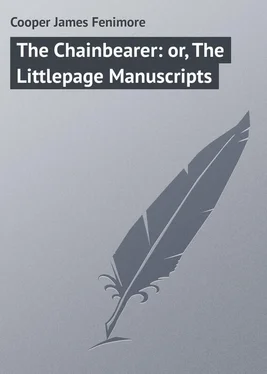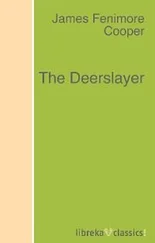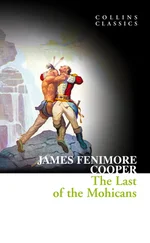James Cooper - The Chainbearer - or, The Littlepage Manuscripts
Здесь есть возможность читать онлайн «James Cooper - The Chainbearer - or, The Littlepage Manuscripts» — ознакомительный отрывок электронной книги совершенно бесплатно, а после прочтения отрывка купить полную версию. В некоторых случаях можно слушать аудио, скачать через торрент в формате fb2 и присутствует краткое содержание. Жанр: foreign_prose, на английском языке. Описание произведения, (предисловие) а так же отзывы посетителей доступны на портале библиотеки ЛибКат.
- Название:The Chainbearer: or, The Littlepage Manuscripts
- Автор:
- Жанр:
- Год:неизвестен
- ISBN:нет данных
- Рейтинг книги:5 / 5. Голосов: 1
-
Избранное:Добавить в избранное
- Отзывы:
-
Ваша оценка:
- 100
- 1
- 2
- 3
- 4
- 5
The Chainbearer: or, The Littlepage Manuscripts: краткое содержание, описание и аннотация
Предлагаем к чтению аннотацию, описание, краткое содержание или предисловие (зависит от того, что написал сам автор книги «The Chainbearer: or, The Littlepage Manuscripts»). Если вы не нашли необходимую информацию о книге — напишите в комментариях, мы постараемся отыскать её.
The Chainbearer: or, The Littlepage Manuscripts — читать онлайн ознакомительный отрывок
Ниже представлен текст книги, разбитый по страницам. Система сохранения места последней прочитанной страницы, позволяет с удобством читать онлайн бесплатно книгу «The Chainbearer: or, The Littlepage Manuscripts», без необходимости каждый раз заново искать на чём Вы остановились. Поставьте закладку, и сможете в любой момент перейти на страницу, на которой закончили чтение.
Интервал:
Закладка:
Cooper James Fenimore
The Chainbearer; Or, The Littlepage Manuscripts
THE CHAINBEARER
PREFACE
The plot has thickened in the few short months that have intervened since the appearance of the first portion of our Manuscripts, and bloodshed has come to deepen the stain left on the country by the wide-spread and bold assertion of false principles. This must long since have been foreseen; and it is perhaps a subject of just felicitation, that the violence which has occurred was limited to the loss of a single life, when the chances were, and still are, that it will extend to civil war. That portions of the community have behaved nobly under this sudden outbreak of a lawless and unprincipled combination to rob, is undeniable, and ought to be dwelt on with gratitude and an honest pride; that the sense of right of much the larger portion of the country has been deeply wounded, is equally true; that justice has been aroused, and is at this moment speaking in tones of authority to the offenders, is beyond contradiction; but, while all this is admitted, and admitted not altogether without hope, yet are there grounds for fear, so reasonable and strong, that no writer who is faithful to the real interests of his country ought, for a single moment, to lose sight of them.
High authority, in one sense, or that of political power, has pronounced the tenure of a durable lease to be opposed to the spirit of the institutions! Yet these tenures existed when the institutions were formed, and one of the provisions of the institutions themselves guarantees the observance of the covenants under which the tenures exist. It would have been far wiser, and much nearer to the truth, had those who coveted their neighbors' goods been told that, in their attempts to subvert and destroy the tenures in question, they were opposing a solemn and fundamental provision of law, and in so much opposing the institutions. The capital error is becoming prevalent, which holds the pernicious doctrine that this is a government of men, instead of one of principles. Whenever this error shall so far come to a head as to get to be paramount in action, the well-disposed may sit down and mourn over, not only the liberties of their country, but over its justice and its morals, even should men be nominally so free as to do just what they please.
As the Littlepage Manuscripts advance, we find them becoming more and more suited to the times in which we live. There is an omission of one generation, however, owing to the early death of Mr. Malbone Littlepage, who left an only son to succeed him. This son has felt it to be a duty to complete the series by an addition from his own pen. Without this addition, we should never obtain views of Satanstoe, Lilacsbush, Ravensnest, and Mooseridge, in their present aspect; while with it we may possibly obtain glimpses that will prove not only amusing but instructive.
There is one point on which, as editor of these Manuscripts, we desire to say a word. It is thought by a portion of our readers, that the first Mr. Littlepage who has written, Cornelius of that name, has manifested an undue asperity on the subject of the New England character. Our reply to this charge is as follows: In the first place, we do not pretend to be answerable for all the opinions of those whose writings are submitted to our supervision, any more than we should be answerable for all the contradictory characters, impulses, and opinions that might be exhibited in a representation of fictitious characters, purely of our own creation. That the Littlepages entertained New York notions, and, if the reader will, New York prejudices, may be true enough; but in pictures of this sort, even prejudices become facts that ought not to be altogether kept down. Then, New England has long since anticipated her revenge, glorifying herself and underrating her neighbors in a way that, in our opinion, fully justifies those who possess a little Dutch blood in expressing their sentiments on the subject. Those who give so freely should know how to take a little in return; and that more especially, when there is nothing very direct or personal in the hits they receive. For ourselves, we have not a drop of Dutch or New England blood in our veins, and only appear as a bottle-holder to one of the parties in this set-to. If we have recorded what the Dutchman says of the Yankee, we have also recorded what the Yankee says, and that with no particular hesitation, of the Dutchman. We know that these feelings are by-gones; but our Manuscripts, thus far, have referred exclusively to the times in which they certainly existed, and that, too, in a force quite as great as they are here represented to be.
We go a little farther. In our judgment the false principles that are to be found in a large portion of the educated classes, on the subject of the relation between landlord and tenant, are to be traced to the provincial notions of those who have received their impressions from a state of society in which no such relations exist. The danger from the anti-rent doctrines is most to be apprehended from these false principles; the misguided and impotent beings who have taken the field in the literal sense, not being a fourth part as formidable to the right as those who have taken it in the moral. There is not a particle more of reason in the argument which says that there should be no farmers, in the strict meaning of the term, than there would be in that which said there should be no journeymen connected with the crafts; though it would not be easy to find a man to assert the latter doctrine. We dare say, if there did happen to exist a portion of the country in which the mechanics were all "bosses," it would strike those who dwelt in such a state of society, that it would be singularly improper and anti-republican for any man to undertake journeywork.
On this subject we shall only add one word. The column of society must have its capital as well as its base. It is only perfect while each part is entire, and discharges its proper duty. In New York the great landholders long have, and do still, in a social sense, occupy the place of the capital. On the supposition that this capital is broken and hurled to the ground, of what material will be the capital that must be pushed into its place! We know of none half so likely to succeed, as the country extortioner and the country usurer! We would caution those who now raise the cry of feudality and aristocracy, to have a care of what they are about. In lieu of King Log, they may be devoured by King Stork.
CHAPTER I
"The steady brain, the sinewy limb,
To leap, to climb, to dive, to swim:
The iron frame, inured to bear
Each dire inclemency of air;
Nor less confirmed to undergo
Fatigue's faint chill, and famine's throe."
My father was Cornelius Littlepage, of Satanstoe, in the County of Westchester, and State of New York; and my mother was Anneke Mordaunt, of Lilacsbush, a place long known by that name, which still stands near Kingsbridge, but on the Island of Manhattan, and consequently in one of the wards of New York, though quite eleven miles from town. I shall suppose that my readers know the difference between the Island of Manhattan and Manhattan Island; though I have found soi-disant Manhattanese, of mature years, but of alien birth, who had to be taught it. Lilacsbush, I repeat therefore, was on the Island of Manhattan, eleven miles from town, though in the City of New York, and not on Manhattan Island.
Of my progenitors further back, I do not conceive it necessary to say much. They were partly of English, and partly of Low Dutch extraction, as is apt to be the case with those who come of New York families of any standing in the colony. I retain tolerably distinct impressions of both of my grandfathers, and of one of my grandmothers; my mother's mother having died long before my own parents were married.
Читать дальшеИнтервал:
Закладка:
Похожие книги на «The Chainbearer: or, The Littlepage Manuscripts»
Представляем Вашему вниманию похожие книги на «The Chainbearer: or, The Littlepage Manuscripts» списком для выбора. Мы отобрали схожую по названию и смыслу литературу в надежде предоставить читателям больше вариантов отыскать новые, интересные, ещё непрочитанные произведения.
Обсуждение, отзывы о книге «The Chainbearer: or, The Littlepage Manuscripts» и просто собственные мнения читателей. Оставьте ваши комментарии, напишите, что Вы думаете о произведении, его смысле или главных героях. Укажите что конкретно понравилось, а что нет, и почему Вы так считаете.












